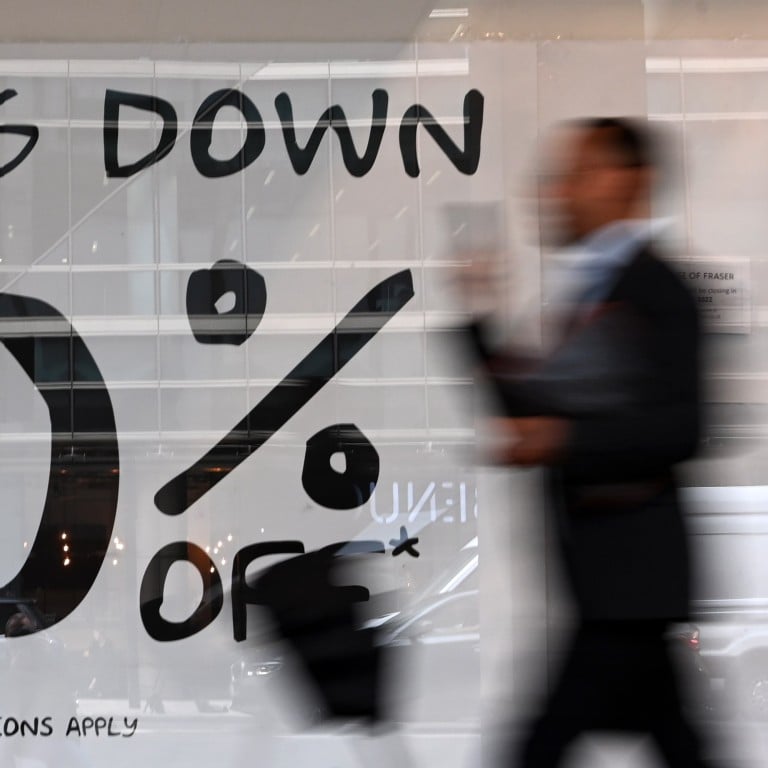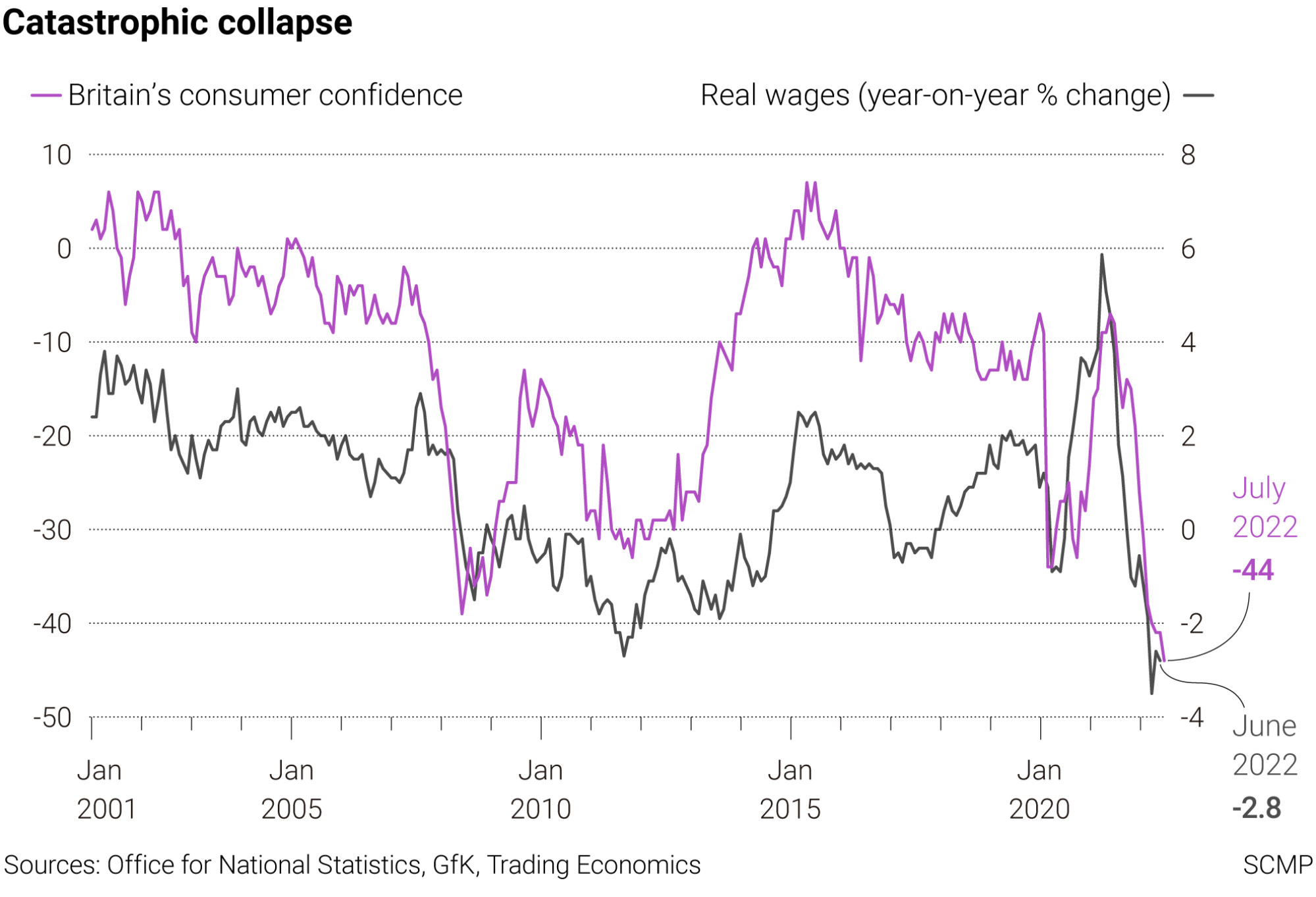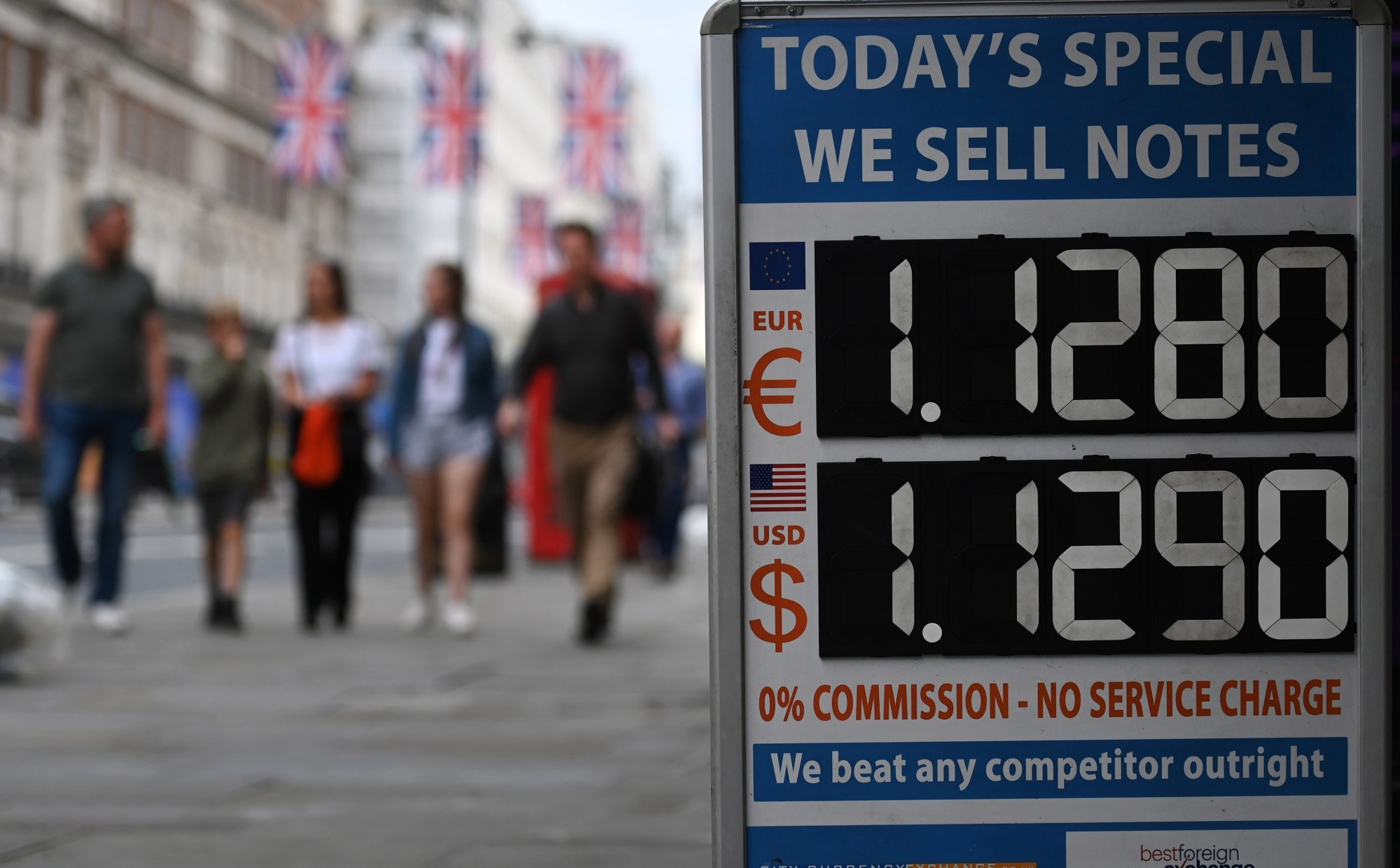
Recession risk, inflation, energy crisis: Britain’s economy going from bad to worse
- Projections for the future of Britain’s economy outstrip even the usual winter gloom with recession and a debt crisis on the horizon
- If the government chooses to spend its way out of the current energy crisis, it could end up too much for the market to bear
Economic salvation is nowhere in sight, and the odds of a UK financial market meltdown are mounting. With deteriorating public finances and a worsening balance of payments, Britain could be heading into a major sovereign debt crisis not seen since the 1970s.
UK growth expectations are in retreat, and the odds are that the economy has already fallen into technical recession. Gross domestic product slipped by 0.1 per cent in the second quarter and the third quarter should have dipped even further into negative territory, judging by monthly GDP data showing a 0.6 per cent fall in June alone.
UK consumer confidence has suffered a catastrophic collapse. A debilitating surge in energy prices has caused headline inflation to jump to 10.1 per cent in July, its highest reading for more than 40 years. Rising prices are putting a major squeeze on UK living standards, with inflation-adjusted real wages falling at their fastest rate on record. Unfortunately, it looks like there is worse to come.

It is no surprise that UK business confidence is being badly affected with the threat of recession, profit margins squeezed by rising costs and the Bank of England threatening much tougher monetary tightening to contain inflation. The S&P Global/CIPS purchasing managers index for the UK manufacturing sector dropped to 47.3 in August, the first contraction in factory activity since May 2020 during the Covid-19 crisis.
The dip in confidence is bad news for investment intentions and new hiring, but there is more trouble to contend with as UK workers demand better pay conditions. Britain could be heading into a winter of discontent, with production disrupted by weaker demand, increased industrial action and the risk of factory shutdowns if energy rationing is required as the colder weather arrives.
Britain’s Liz Truss vows immediate action on energy if appointed PM

Special emergency measures pushed the government’s fiscal deficit close to 13 per cent of GDP during the 2020 Covid-19 crisis. It could happen again if the government chooses to spend its way out of the current energy crisis, but it could end up too much for the market to bear.
History has a habit of repeating itself. In 1976, the UK was forced to go cap in hand to the International Monetary Fund to bail out its currency from a serious balance of payments crisis. Britain’s economic outlook is going from bad to worse, with no hope of salvation in sight.
David Brown is the chief executive of New View Economics

